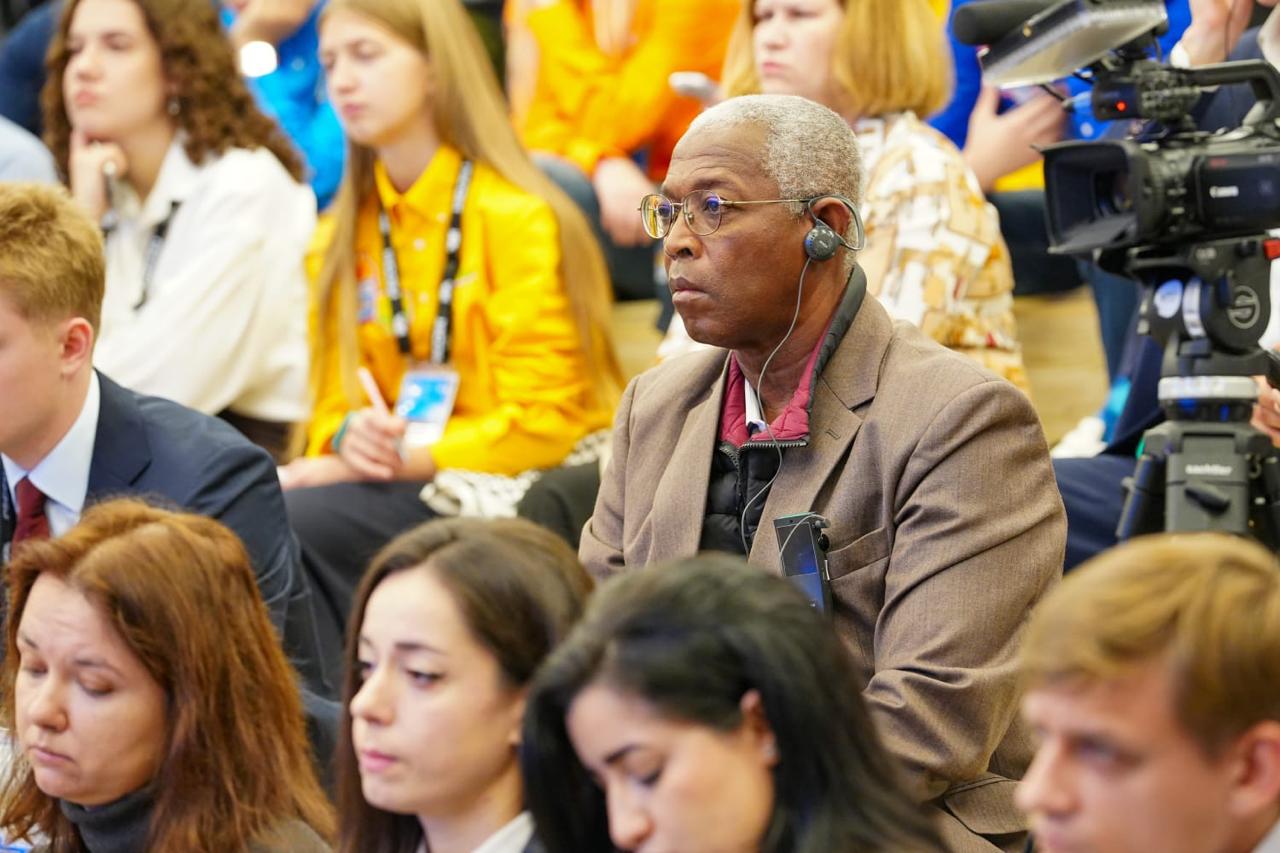 Participants at the symposium at which Moscow sought to position itself as a long-term partner of Africa./HANDOUT
Participants at the symposium at which Moscow sought to position itself as a long-term partner of Africa./HANDOUTThe symposium itself, attended by participants from over 85 countries, serves as a platform for a major outreach, part of what the Kremlin calls its ‘Decade of Science and Technology.’
At a government-sponsored symposium this week, Russian officials and analysts laid out a vision for an expanded strategic partnership with Africa, aiming to transform its current ties into a dominant influence on the continent by 2063.
The panel, titled “Russia and Africa in 2063,” was a featured part of the ‘Inventing the Future’ symposium, an event held under the mandate of President Vladimir Putin.
This underscores the Kremlin's concerted push to bolster its geopolitical and economic footprint in Africa amid its isolation from the West over the war in Ukraine.
“Africa is young, digital, and forward-looking. Russia is technological and resource-rich. Together, they could form a new pillar of the global balance,” said Valentin Bianki, a moderator of the discussion and an expert at the HSE University’s Center for African Studies, which co-organized the session.
He acknowledged, however, that mutual knowledge is shallow. “The understanding of Africa in Russia is currently not deep enough, and similarly, knowledge about Russia in Africa is limited.”
The vision presented was ambitious. Officials described a future where Russian-African cooperation evolves into a ‘strategic bridge’ encompassing energy, digital technology, logistics, and education.
This echoes the Kremlin's broader foreign policy goal of building a coalition of non-Western states to counterbalance U.S. and European influence.
While Russia remains a major supplier of weapons, food, and energy to several African nations, officials insisted the partnership is moving beyond raw materials.
Andrei Panyukhov of the Russian Foreign Ministry highlighted plans to expand tourism, while Pavel Kalmychek from the Ministry of Economic Development promised “joint industrial and logistics clusters based on principles of technology transfer and sustainable development.”
“The partnership with Africa extends beyond raw materials cooperation,” Kalmychek said, a claim that analysts view as essential for Russia’s long-term economic interests as it seeks new markets and partners. The Russian courtship found a receptive audience among some African participants.
Moktar Seck, a Senegalese official with the UN Economic Commission for Africa, emphasized potential collaboration on nuclear energy, infrastructure, and artificial intelligence. “Knowing Russia's potential, we can identify new areas of convergence,” he said.
The importance of creating a stable legal framework for this partnership was stressed by Aliou Tunkara, a lawmaker from Mali, where Russian state-sponsored Wagner Group mercenaries have a significant presence. “It is important to create a legal basis for our partnership to simplify and strengthen it,” Tunkara said.
Recognizing that sustainable influence requires soft power, other speakers pointed to cultural exchange. Vicencia Shule of the African Union Commission noted that African youth are curious about their Russian peers, stating, “Cooperation often starts with the youth.”
The 2063 timeline is significant, aligning with the African Union’s own “Agenda 2063” development framework. By aligning its vision with the continent’s aspirations, Russia is attempting to position itself as a long-term partner.
The symposium itself, attended by participants from over 85 countries, serves as a platform for this outreach, part of what the Kremlin calls its “Decade of Science and Technology.”
For Russia, the event was less about making precise predictions and more about sending a clear message: as its conflict with the West persists, it is digging deep foundations in Africa, playing a strategic long game where it hopes patience and partnership will eventually pay off.
- CAJ News












